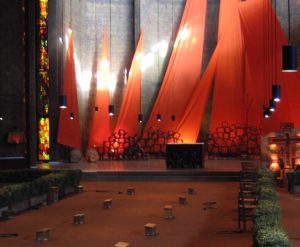Perhaps one of the most exciting developments from the perspective of Christian-Muslim relations in contemporary history is the so-called “Common Word” initiative launched recently by The Royal Aal al-Bayt Institute in Amman, Jordan. On October 13th, 2007, on the initiative of Prince Ghazi b. Muhammad, 138 Muslim scholars, clerics and intellectuals from diverse Islamic schools and denominations were the signatories of a document entitled “A Common Word between Us and You”, inviting Christian leaders and people everywhere to positive engagement, on the basis of what they saw as the common ground between the two religions: Jesus’ teaching about loving God and loving neighbor. Making the initiative even more relevant for us Evangelicals, the Yale Center for Faith and Culture at Yale University, under the leadership of two prominent Evangelical and mission-minded scholars, initiated a response to the Muslim invitation, for which they managed to get endorsement by over 300 Christian scholars and leaders from across the world.
It may not be immediately obvious to an outsider, but the particularity of these recent developments is that they have suddenly propelled dialogue with Islam to a central position in the Evangelical agenda. Interestingly, it does seem that both sides were to a great extent taken by surprise by this unexpected turn of events. The Muslim initiative was by no means launched primarily with Evangelicals in mind. The “recipients” section, after listing by name numerous top Christian leaders of most denominations, ends with: “And Leaders of Christian Churches, everywhere….” And indeed it has received responses from numerous Christian leaders, scholars and organizations. Neither do I think that the initiators of the Yale Response ever expected their letter to be met with such a welcome reception by the Muslim initiators of the Common Word letter. I believe it is fair to say that, in many ways, western Evangelicals and Muslims came to a quasi-discovery of each other through this initiative and exchange, at least at the institutional level if not at the level of a good number of individuals. In fact, I want to go so far as to call this moment a kairos moment, an appointed time of God.
The other side of the story, however, is that this mutual discovery has also managed to split the Evangelical community into two camps. The first camp is made of those who, in their evangelistic methods, have traditionally adopted a more exclusivist and polemical approach to other religions, including in their approach to Islam. Many in that group have expressed their dismay and disbelief that Evangelicals should actually be willing to engage in dialogue with Muslims. The other is the more “inclusivist” camp, the several hundred represented by the signatories of the Yale Response. These represent the position that the Gospel proclamation needs to be primarily a positive proclamation, and therefore that it is not in conflict with the principles of dialogue. Perhaps one of the most striking elements is that on both sides of this deepening divide, there are some top caliber theologians and highly seasoned missionaries. Moreover, neither side is willing to give up evangelism and mission, and all recognize and have pointed out that Islam’s persecution of Muslim converts to Christianity under the rubric of the infamous “apostasy law” is unacceptable and needs to be addressed.
A few lines back I called the moment of encounter between Evangelical Christians and Muslims around the Common Word exchange a kairos moment. As any appointed time of God, it does not in any way violate human liberty to respond or not to respond, and therefore even such exceptional opportunities can altogether be missed by God’s people. It is this very real, even frightening, possibility that makes McConnell’s paper as welcome as the Yale Response itself. At this point in the history of this interfaith exchange, if we want to continue to make history by being responsive to God’s kairos, we are going to need a growing number of theologians, missiologists and creative practitioners of God’s ministries to continue to engage and follow up on what was begun two years ago in a way that is faithful to the spirit of Christ found in the Gospels.


